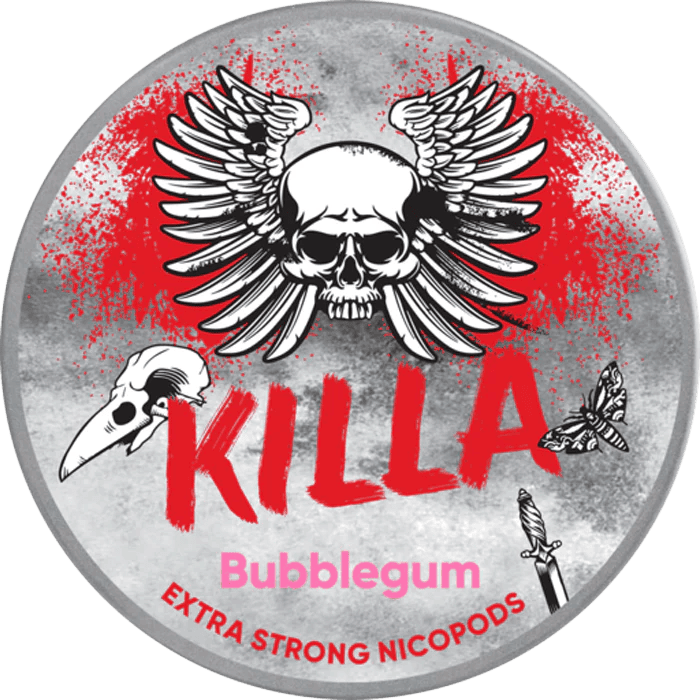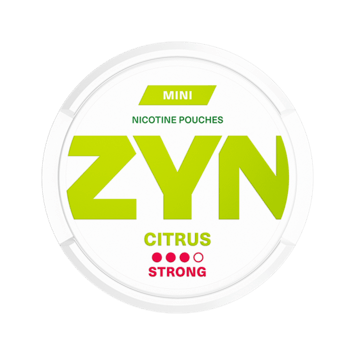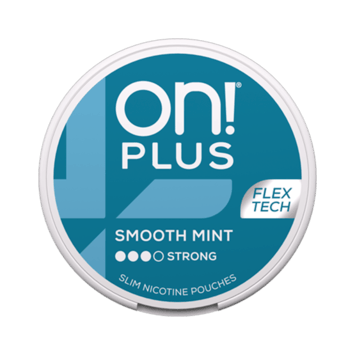What are the health risks of nicotine pouches?
Philip Plainstein

Nicotine pouches have become popular in the U.S. market. But, there are health concerns. They are seen as a safer option than traditional tobacco.
The FDA approved ZYN brand pouches in 2023. This made them the top choice in the U.S. by the end of the year.
Nicotine pouches can have more nicotine than cigarettes. This can lead to addiction. In 2023, over 385 million cans were shipped to the U.S.
These products are not just tobacco alternatives. They also have harmful chemicals. Some of these chemicals might cause cancer.
More young people are using nicotine pouches. The 2024 National Youth Tobacco Survey shows this. It’s important to talk about the dangers of these products.
Introduction to Nicotine Pouches
Nicotine pouches are new in the UK, starting in 2019. They are different from regular tobacco. They have nicotine, water, flavours, and sweeteners but no tobacco.
People put these pouches between their gum and lip. This lets them get nicotine through their mucous membranes. It’s why they’re getting more popular, mainly with smokers looking for new options.
Brands like On!, Zyn, and Velo are well-known. A pack has about 20 pouches, costing £5 to £6.50. Each pouch has different amounts of nicotine, from 1.29 mg to 6.11 mg. Some pouches even have about 11 mg of nicotine.
These pouches might be safer than smoking. But, they’re not officially called nicotine replacement therapy. Their growing popularity has led to many talks about their safety and if they help people stop smoking.
What Are Nicotine Pouches Made Of?
Nicotine pouches are a new way to get nicotine. They mix nicotine, water, flavours, sweeteners, and plant fibres. The nicotine in them can be very strong, sometimes more than in some medicines.
This strong nicotine is absorbed well by the body. It’s because most of it is in its free-base form. This makes it easier for the body to use.
These pouches come in many flavours like mint and coffee. They are made without tobacco leaves. This means they don’t have tar or harmful substances found in smoking.
But, some pouches might be risky. A study in 2022 found harmful chemicals in some. It showed 26 out of 44 pouches had substances that could cause cancer.
Nicotine pouches are getting more popular. A study found 16% of young people in the U.S. tried them. Most users also smoke cigarettes, showing a link between the two.
nicotine pouches health risks
Nicotine pouches are getting more popular. But, we need to know about their health risks. They might seem safer than tobacco, but they’re not risk-free. They can cause health problems.
Potential Chemical Exposures
Nicotine pouches don’t have all the bad stuff in tobacco. But, they can have other harmful chemicals. They have nicotine, flavourings, and sweeteners. Using them too much can cause mouth problems.
Even though they have less bad stuff, some pouches might have tiny amounts of harmful chemicals. This raises questions about their safety over time. More research is needed to understand this. Learn more about the risks.
Comparison with Other Tobacco Products
Nicotine pouches might be safer than some tobacco products. But, they can be addictive. They deliver nicotine in a way that’s similar to smokeless tobacco. This makes them a concern for health.
It’s important to keep watching how nicotine pouches compare to other tobacco products. As people use them more, we need to understand their effects better. This helps us make safer choices.
| Product Type | Carcinogenic Risk | Nicotine Delivery Method | Common Side Effects |
|---|---|---|---|
| Nicotine Pouches | Moderate – Contains trace HPHCs | Oral absorption | Nausea, mouth lesions, gum irritation |
| Chewing Tobacco | High – Contains multiple carcinogens | Oral absorption | Cancer, gum disease, tooth decay |
| Snus | High – Tobacco-specific risks | Oral absorption | Gum recession, nicotine addiction |
| Smoking | Very High – Numerous carcinogens | Lung absorption | Respiratory issues, heart disease |
Nicotine pouches are becoming more popular. It’s important to keep checking their safety. Knowing the risks helps us make better choices, even for young people.
Oral Health Implications of Nicotine Pouches
Nicotine pouches are becoming more popular. But, they can harm your mouth. They can cause mouth sores and gum irritation. This is because they sit in your mouth for a long time.
Using them a lot can make your gums swell and even pull back. A study showed that 75% of people got mouth sores. Also, 54-57% had their gums pull back. This can lead to serious gum disease.
Nicotine can also make your teeth hurt more and increase the chance of cavities. It’s important to see a dentist often if you use these pouches. This can help prevent problems.
People usually use two pouches at a time for about 11 minutes. This can dry out your mouth. It’s not good for your mouth.
Even though they are seen as safer than regular tobacco, they are not risk-free. They can harm your mouth over time. To learn more, check out how nicotine affects your gums. It’s key to watch your mouth health to avoid gum disease.
| Symptoms | Percentage of Users |
|---|---|
| Oral Lesions | 75% |
| Gingival Retraction | 54-57% |
| Soreness in Mouth | 37% |
| Strange Jaw Sensation | 1% |
Cardiovascular Risks Associated with Nicotine Use
It’s important to know the heart risks from nicotine. Nicotine affects heart rate and blood pressure a lot. Even though they don’t have tobacco, they have a lot of nicotine like cigarettes.
Effects on Heart Rate and Blood Pressure
Nicotine makes your heart beat faster. It can go up by 10-15 beats per minute right after use. Over time, it can make your heart beat about 7 beats per minute faster all day.
This can be bad news for your heart. It might make your blood pressure go up by 5-10 mm Hg. This is not good, and it can be worse if you already have heart problems.
Studies show nicotine pouches can have as much nicotine as cigarettes. This means they can be addictive. The risks of nicotine use are real, and they’re not good for people with heart issues.
Impact on Saliva Production and Oral Hygiene
Nicotine from pouches can harm saliva production. Less saliva means dry mouth, which is bad for teeth. Saliva helps clean teeth and keeps them healthy.
Less saliva from pouches can cause cavities and gum disease. These problems are serious. They can make using pouches worse for your mouth.
People using pouches might also get mouth sores and bad breath. This makes keeping teeth clean harder. It’s key to see a dentist often and learn about these risks.
| Impact of Nicotine Pouches on Oral Health | Condition | Effects on Saliva Production |
|---|---|---|
| Tooth Decay | Increased risk due to dry mouth | Reduced saliva flow exacerbates acid presence |
| Gum Disease | Higher prevalence with prolonged use | Decreased saliva results in less protective environment |
| Bad Breath | Common complaint among users | Saliva’s cleansing action compromised |
| Mouth Irritation | Possible due to prolonged contact with gums | Dryness may increase sensitivity |
Research Gaps in Understanding Health Risks
Research on nicotine pouches shows we don’t fully know their health risks. People think they are safer than regular tobacco, but we need more studies. We must watch how nicotine pouches affect people over time, mainly those moving from harmful tobacco.
Nicotine pouches give nicotine at the same rate as other smokeless products. But, because they are different, we need to study them more. Unburned tobacco has about 16 harmful substances, and smoke has over 60. We don’t know much about the health effects of using nicotine pouches.
We need more studies on the long-term health effects of nicotine pouches. Many tobacco users live in countries with less money. It’s important to study how nicotine pouches affect people in different places, like South Asia.
It’s also important to look at how nicotine pouches might be used by people who don’t smoke. Young people might not know the dangers of nicotine. We need to understand how marketing draws in new users. By filling these gaps, we can make better health policies and help people make informed choices.
| Study Focus | Findings | Research Needs |
|---|---|---|
| Delivery of Nicotine | Similar delivery rates to traditional smokeless products | Longitudinal studies on health impacts |
| Composition Analysis | Lower harmful constituents compared to snus | Detailed health effects of unique ingredients |
| Usage Patterns | Increased sales, signalling rising popularity | Impact assessment on smoking cessation efforts |
| Marketing Strategies | Appeal to both youth and adult demographics | Analysis of possible gateway effects |
Exploring Nicotine Addiction
Nicotine addiction is a big problem, made worse by products like nicotine pouches. Sales of these pouches have gone up six times from 2019 to 2022. This shows more people are using them.
It’s hard for users to stop because nicotine makes them feel good. A 2022 study found that pouches with more nicotine are being sold faster. This is worrying.
Using nicotine can lead to more than just addiction. Young people who use pouches also smoke or vape. This is very dangerous.
Even though pouches are not approved by the FDA, many young people use them. They are attracted to the nicotine because their brains are developing. This makes them more likely to get addicted.
Young users are at high risk because nicotine can harm their brains. Zyn pouches, for example, saw a huge increase in sales in 2020. Doctors worry about side effects like gum problems and nausea.
There are no rules about flavoured pouches. This makes the problem worse. It’s hard to stop the rise in nicotine use. We need to understand the risks to keep people healthy.
Are Nicotine Pouches Safer Than Vaping?
Many experts and users are debating if nicotine pouches are safer than vaping. Both are alternatives to tobacco, but they work differently. Nicotine pouches don’t burn tobacco, but they have their own health risks.
Studies show over 20 million people in the U.S. are addicted to nicotine. About 25% of 12th graders have used it recently. Nicotine pouches can give more nicotine than cigarettes, but how it gets into the blood is complex. Both can lead to addiction and health problems, but we don’t know all the details yet.
Using nicotine pouches can cause mouth and stomach problems. It can also harm your teeth and gums. These issues are important to think about when choosing between nicotine pouches and vaping.
Nicotine pouches have been around in the U.S. only from 2014. But, more studies are needed to fully understand their effects. As these products become more popular, it’s important to make smart choices about nicotine use. We need to consider the health risks of using nicotine pouches or vaping.
Regulatory and Safety Considerations
Nicotine pouches are now seen as consumer products in the UK. They have raised big questions about health risks and safety. More people are trying them, going from 2.7% in 2020 to 5.4% by 2024.
About 44% of the UK population doesn’t know about nicotine pouches. This shows we really need strong nicotine rules.
Health experts want rules like those for tobacco and e-cigarettes. They want age limits and strict ads. This could stop more young people from using them.
Studies show risks for kids and pregnant women. This is why rules are so important.
Belgium and the Netherlands have banned nicotine pouches. The UK might follow to keep everyone safe. Setting limits on nicotine and raising awareness are key steps.









